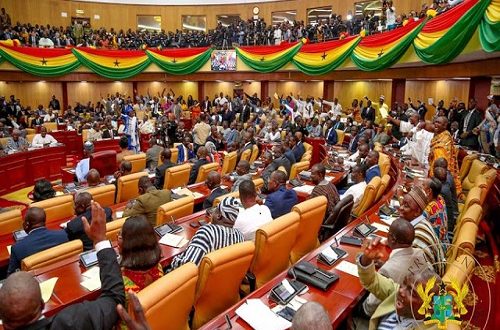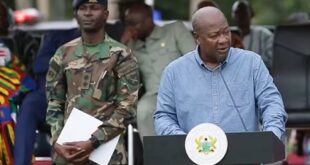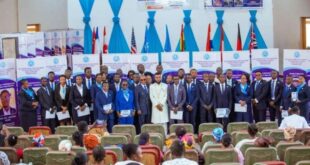Government business was brought to a halt by the minority caucus in Parliament for the third time this week when the majority was accused of not forming a quorum.
The Minority on the three occasions made references to the recent Supreme Court ruling which ruled that a sitting Deputy Speakers can vote while presiding.
The apex court presided over by Justice Jones Dotse, held that the Deputy Speaker does not lose his right to take part in decision-making upon a true and proper interpretation of Article 103 and 104 of the 1992 Constitution.
The minority has vowed to abide by the ruling of the Supreme Court by referencing Article 104 (1) of the 1992 Constitution any time there is a motion before the house.
What does Article 104 say
Article 104(1) of the Constitution stipulates that “Except as otherwise provided in this Constitution, matters in Parliament shall be determined by the votes of the majority of members present and voting, with at least half of all the members of Parliament present.”
Based on this the Minority have on three occasions arrested motions moved by the house citing the Supreme Court judgment on the difference between quorum for commencement of business and quorum for decision making.
Unfortunately, the house is usually without, at least half of all the members of Parliament present which usually makes the minority succeed in calling for an adjournment of sitting for lack of quorum to make a decision.
Financial agreements that have been rejected so far
On March 15, the approval of a loan agreement of about 38million euros between the government of Ghana and the Deutsche bank of Frankfurt for the construction of some 40-bed district hospitals in three constituencies was arrested by the Minority Leader, Haruna Iddrisu.
On March 17, the approval of a €20 million agreement between the government of Ghana and the German Development Bank Group, Frankfurt was also arrested for lack of quorum.
On Friday, March 18, the above motion was again shut down due to a lack of quorum.
The above amount, which has been blocked, is to finance the Green Credit Line under the Reform and Investment Partnership between the government of Ghana and the Federal Republic of Germany.
The loan, which seeks to expand Ghana’s access to renewable energy, among others, is part of the G20 Compact with Africa and is expected to be repaid within a period of 32years at an interest rate of 12 percent with a grant element of 53.2 percent.
The overall objective of the project is to achieve the national target of reducing greenhouse gas emissions by 15 percent by 2030 and achieving a renewable energy (RE) share of 10 percent of the total energy mix (excluding hydroelectric power plants).
Implications
If the act of arresting motions continues in parliament, there may be a halt in government business as the house will not approve any loans and other financial agreements that may be of benefit the country.
Some stakeholders have cautioned the minority against these actions as it could affect the country negatively.
The legislators have been urged to put aside their political differences and focus on the interest of the country at large to ensure the smooth running of the country.
Source: www.ghanaweb.com
 Home Of Ghana News Ghana News, Entertainment And More
Home Of Ghana News Ghana News, Entertainment And More





